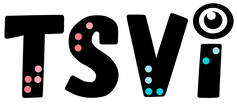- Home
-
Learn
- History of VI >
- Legislation & Laws >
- Vision Professionals >
-
VI Program Resources
>
- Program Printables
- Itinerant Teaching Tips
- Year at a Glance
- VI Program Handbook
- Caseload Analysis
- Organization & Time Management
- Professional Development
- Teacher Standards
- Professional Ethics
- Awards & Recognition
- APH Scholar Program
- Professional Organizations
- Certification Organizations
- Dealing with Challenges
- Professional Publications >
- Relatable Books for All Ages >
- Family Resources >
- Plan
- Basics
-
Teach
- Teaching Strategies >
-
Compensatory Skills Instruction
>
-
Social Skills
>
-
Self Determination
>
- Body Image & Acceptance
- Making Personal Goals
- My Vision Presentation
- My Self-Description
- Create a Personal Data Sheet
- Disclosure Decision
- Disability Statement
- Requesting Help
- Fighting Fears
- My Circle of Support
- Personal Responsibility
- Advocate for Safe Enviroments
- Having Picture Taken
- Coping with Change
- Aging Eyes
- Physical Characteristics
- Political Activism
- Laws Regarding Persons with Disabilities
-
Sensory Efficiency
>
-
Independent Living
>
- Orientation & Mobility Instruction >
- Recreation & Leisure >
-
Career & Vocation
>
-
Grow
- Complete Set Bonus >
-
Recorded Presentations
>
- Webinar: Tips for Being a "Physically Fit" TVI
- Webinar: The Art of Teaching the ECC
- Webinar: Virtual & F2F Strategies
- Webinar: Foundations of Teaching the ECC in the Age of Virtual Instruction
- Webinar: Itinerant Teaching Strategies
- Webinar: Using Themes to Teach the ECC
- Webinar: Conducting a FVLMA
- Webinar: Selecting the Right AT
- Webinar: Developing SMARTER Goals
- Webinar: Determining Service Intensity Using the VISSIT
- Webinar: Activities to Teach the ECC
- Webinar: Accessible Content for BLVI
- Webinar: Accommodations for VI
- Webinar: MIMO Strategies & Activities
- Webinar: SIDPID Strategies & Activities
- Webinar: Standard Course of Study Strategies & Activities
- Webinar: Job Tasks for Job, Career & Life
- Shop
- Jobs
Federal Quota Fundsby Carmen Willings
teachingvisuallyimpaired.com Revised: July 18, 2020 What are Federal Quota Funds?The Federal Act to Promote the Education of the Blind enacted by Congress in 1879 provides adapted educational materials to eligible students who meet the definition of blindness. Each state holds an annual registration of eligible students determines a per capita amount of money designated for the purchase of educational materials produced by the American Printing House for the Blind (APH). These funds are credited to Federal Quota accounts which are maintained and administered by APH and its Ex Officio Trustees throughout the country.
Who is Eligible for Quota Funds?For students to be eligible for registration in the Federal Quota Program, they MUST meet the requirements as outlined in the Act to Promote the Education of the Blind. Students must meet the requirements of one of the following two categories (This is different from the eligibility criteria for school-based vision-related services).
1. Meets the Definition of Blindness (MDB) is the primary category for eligible students and indicates a central visual acuity of 20/200 or less in the better eye with best correction (with prescribed glasses, if any) and/or a peripheral field so contracted that the widest diameter of such field subtends an angular distance no greater than 20 degrees. 2. Functions at the Definition of Blindness (FDB) is a category indicating blindness due to a brain injury or dysfunction. A student whose visual performance is reduced by a brain injury or dysfunction may be considered for educational purposes when visual function meets the definition of blindness as determined by an eye care specialist or neurologist. Students in this category manifest unique visual characteristics often found in conditions referred to as neurological, cortical, or cerebral visual impairment. AND 1. Be enrolled in a formally organized public or private, nonprofit education program of less than college level; and 2. Be enrolled with the registering school or agency on the first Monday in January of each year. Adult students must be registered for at least three months of instruction during the preceding calendar year (an accumulation of 12 weeks). The educational programs providing services to these students can include public, private, and parochial schools. Infants, preschool children, home-bound students, home-schooled students, and adults can be registered when they meet the requirements. A written educational plan and a current eye report (within three years) by an ophthalmologist or an optometrist must be on file in the district/agency for each registered student. If the eye care specialist states the child meets the definition of blindness, is legally blind, or meets the Snellen equivalence of blindness, the school can report the vision as MDB. Documentation should be available If an audit requires evidence of the student's educational program or visual acuity. There is no chronological age limit for eligibility. However, for adults to be eligible for registration in the Federal Quota Program, they MUST meet the above-listed definition of blindness and: 1. Be enrolled in instructional programs, at less than college level, for 20 hours per week. Social and leisure programs do not qualify as instruction. However, student practice to develop skills can be included in instructional hours. 2. Be registered for at least three months of instruction during the preceding calendar year (an accumulation of 12 weeks). Spending GuidelinesFederal Quota money can only be used to order textbooks and items listed in the APH products catalog. Items marked with "Not available on Quota," cannot be ordered. Visit aph.org for more information.
Pro Tip!Be sure to hang on to at least one copy of past APH catalogs! Products change and pictures are not always included in every catalog. Having older copies can help you recall and identify parts to discontinued kits.
Free Matter for the BlindIf the student is legally blind, remember that he is entitled to send and receive certain materials through the US Postal Service for free. Materials such as textbooks, educational materials, Braille letters, and books on tape from The Library for the Blind may be mailed without postage. The package/envelope must have the words "free matter for the blind" stamped or handwritten on them. It is important to remember that these materials must be for the use of someone who is legally blind so be cautious.
|
History of Visual Impairments
Professional Practice
Vision Professionals
Professionalism
Teacher Resources
Professional Publications
VI Book Resources
|
|
Teaching Students with Visual Impairments LLC
All Rights Reserved |
- Home
-
Learn
- History of VI >
- Legislation & Laws >
- Vision Professionals >
-
VI Program Resources
>
- Program Printables
- Itinerant Teaching Tips
- Year at a Glance
- VI Program Handbook
- Caseload Analysis
- Organization & Time Management
- Professional Development
- Teacher Standards
- Professional Ethics
- Awards & Recognition
- APH Scholar Program
- Professional Organizations
- Certification Organizations
- Dealing with Challenges
- Professional Publications >
- Relatable Books for All Ages >
- Family Resources >
- Plan
- Basics
-
Teach
- Teaching Strategies >
-
Compensatory Skills Instruction
>
-
Social Skills
>
-
Self Determination
>
- Body Image & Acceptance
- Making Personal Goals
- My Vision Presentation
- My Self-Description
- Create a Personal Data Sheet
- Disclosure Decision
- Disability Statement
- Requesting Help
- Fighting Fears
- My Circle of Support
- Personal Responsibility
- Advocate for Safe Enviroments
- Having Picture Taken
- Coping with Change
- Aging Eyes
- Physical Characteristics
- Political Activism
- Laws Regarding Persons with Disabilities
-
Sensory Efficiency
>
-
Independent Living
>
- Orientation & Mobility Instruction >
- Recreation & Leisure >
-
Career & Vocation
>
-
Grow
- Complete Set Bonus >
-
Recorded Presentations
>
- Webinar: Tips for Being a "Physically Fit" TVI
- Webinar: The Art of Teaching the ECC
- Webinar: Virtual & F2F Strategies
- Webinar: Foundations of Teaching the ECC in the Age of Virtual Instruction
- Webinar: Itinerant Teaching Strategies
- Webinar: Using Themes to Teach the ECC
- Webinar: Conducting a FVLMA
- Webinar: Selecting the Right AT
- Webinar: Developing SMARTER Goals
- Webinar: Determining Service Intensity Using the VISSIT
- Webinar: Activities to Teach the ECC
- Webinar: Accessible Content for BLVI
- Webinar: Accommodations for VI
- Webinar: MIMO Strategies & Activities
- Webinar: SIDPID Strategies & Activities
- Webinar: Standard Course of Study Strategies & Activities
- Webinar: Job Tasks for Job, Career & Life
- Shop
- Jobs

